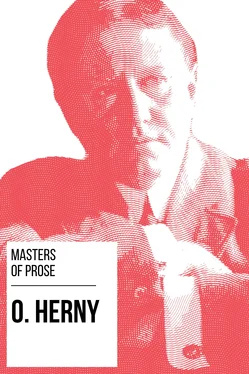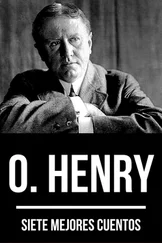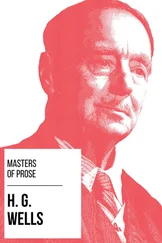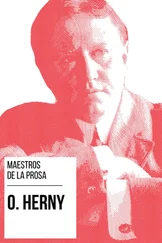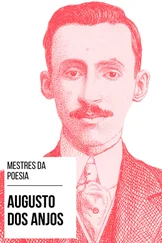On the sidewalk a Salvation lassie shook her contribution receptacle gently against my waistcoat pocket.
"Would you mind telling me," I asked her, "if you ever meet with the character commonly denominated as 'A Man About Town' during your daily wanderings?"
"I think I know whom you mean," she answered, with a gentle smile. "We see them in the same places night after night. They are the devil's body guard, and if the soldiers of any army are as faithful as they are, their commanders are well served. We go among them, diverting a few pennies from their wickedness to the Lord's service."
She shook the box again and I dropped a dime into it.
In front of a glittering hotel a friend of mine, a critic, was climbing from a cab. He seemed at leisure; and I put my question to him. He answered me conscientiously, as I was sure he would.
"There is a type of 'Man About Town' in New York," he answered. "The term is quite familiar to me, but I don't think I was ever called upon to define the character before. It would be difficult to point you out an exact specimen. I would say, offhand, that it is a man who had a hopeless case of the peculiar New York disease of wanting to see and know. At 6 o'clock each day life begins with him. He follows rigidly the conventions of dress and manners; but in the business of poking his nose into places where he does not belong he could give pointers to a civet cat or a jackdaw. He is the man who has chased Bohemia about the town from rathskeller to roof garden and from Hester street to Harlem until you can't find a place in the city where they don't cut their spaghetti with a knife. Your 'Man About Town' has done that. He is always on the scent of something new. He is curiosity, impudence and omnipresence. Hansoms were made for him, and gold-banded cigars; and the curse of music at dinner. There are not so many of him; but his minority report is adopted everywhere.
"I'm glad you brought up the subject; I've felt the influence of this nocturnal blight upon our city, but I never thought to analyse it before. I can see now that your 'Man About Town' should have been classified long ago. In his wake spring up wine agents and cloak models; and the orchestra plays 'Let's All Go Up to Maud's' for him, by request, instead of Händel. He makes his rounds every evening; while you and I see the elephant once a week. When the cigar store is raided, he winks at the officer, familiar with his ground, and walks away immune, while you and I search among the Presidents for names, and among the stars for addresses to give the desk sergeant."
My friend, the critic, paused to acquire breath for fresh eloquence. I seized my advantage.
"You have classified him," I cried with joy. "You have painted his portrait in the gallery of city types. But I must meet one face to face. I must study the Man About Town at first hand. Where shall I find him? How shall I know him?"
Without seeming to hear me, the critic went on. And his cab-driver was waiting for his fare, too.
"He is the sublimated essence of Butt-in; the refined, intrinsic extract of Rubber; the concentrated, purified, irrefutable, unavoidable spirit of Curiosity and Inquisitiveness. A new sensation is the breath in his nostrils; when his experience is exhausted he explores new fields with the indefatigability of a—"
"Excuse me," I interrupted, "but can you produce one of this type? It is a new thing to me. I must study it. I will search the town over until I find one. Its habitat must be here on Broadway."
"I am about to dine here," said my friend. "Come inside, and if there is a Man About Town present I will point him out to you. I know most of the regular patrons here."
"I am not dining yet," I said to him. "You will excuse me. I am going to find my Man About Town this night if I have to rake New York from the Battery to Little Coney Island."
I left the hotel and walked down Broadway. The pursuit of my type gave a pleasant savour of life and interest to the air I breathed. I was glad to be in a city so great, so complex and diversified. Leisurely and with something of an air I strolled along with my heart expanding at the thought that I was a citizen of great Gotham, a sharer in its magnificence and pleasures, a partaker in its glory and prestige.
I turned to cross the street. I heard something buzz like a bee, and then I took a long, pleasant ride with Santos-Dumont.
When I opened my eyes I remembered a smell of gasoline, and I said aloud: "Hasn't it passed yet?"
A hospital nurse laid a hand that was not particularly soft upon my brow that was not at all fevered. A young doctor came along, grinned, and handed me a morning newspaper.
"Want to see how it happened?" he asked cheerily. I read the article. Its headlines began where I heard the buzzing leave off the night before. It closed with these lines:
"—Bellevue Hospital, where it was said that his injuries were not serious. He appeared to be a typical Man About Town."
On his bench in Madison Square Soapy moved uneasily. When wild geese honk high of nights, and when women without sealskin coats grow kind to their husbands, and when Soapy moves uneasily on his bench in the park, you may know that winter is near at hand.
A dead leaf fell in Soapy's lap. That was Jack Frost's card. Jack is kind to the regular denizens of Madison Square, and gives fair warning of his annual call. At the corners of four streets he hands his pasteboard to the North Wind, footman of the mansion of All Outdoors, so that the inhabitants thereof may make ready.
Soapy's mind became cognisant of the fact that the time had come for him to resolve himself into a singular Committee of Ways and Means to provide against the coming rigour. And therefore he moved uneasily on his bench.
The hibernatorial ambitions of Soapy were not of the highest. In them there were no considerations of Mediterranean cruises, of soporific Southern skies drifting in the Vesuvian Bay. Three months on the Island was what his soul craved. Three months of assured board and bed and congenial company, safe from Boreas and bluecoats, seemed to Soapy the essence of things desirable.
For years the hospitable Blackwell's had been his winter quarters. Just as his more fortunate fellow New Yorkers had bought their tickets to Palm Beach and the Riviera each winter, so Soapy had made his humble arrangements for his annual hegira to the Island. And now the time was come. On the previous night three Sabbath newspapers, distributed beneath his coat, about his ankles and over his lap, had failed to repulse the cold as he slept on his bench near the spurting fountain in the ancient square. So the Island loomed big and timely in Soapy's mind. He scorned the provisions made in the name of charity for the city's dependents. In Soapy's opinion the Law was more benign than Philanthropy. There was an endless round of institutions, municipal and eleemosynary, on which he might set out and receive lodging and food accordant with the simple life. But to one of Soapy's proud spirit the gifts of charity are encumbered. If not in coin you must pay in humiliation of spirit for every benefit received at the hands of philanthropy. As Caesar had his Brutus, every bed of charity must have its toll of a bath, every loaf of bread its compensation of a private and personal inquisition. Wherefore it is better to be a guest of the law, which though conducted by rules, does not meddle unduly with a gentleman's private affairs.
Soapy, having decided to go to the Island, at once set about accomplishing his desire. There were many easy ways of doing this. The pleasantest was to dine luxuriously at some expensive restaurant; and then, after declaring insolvency, be handed over quietly and without uproar to a policeman. An accommodating magistrate would do the rest.
Читать дальше
